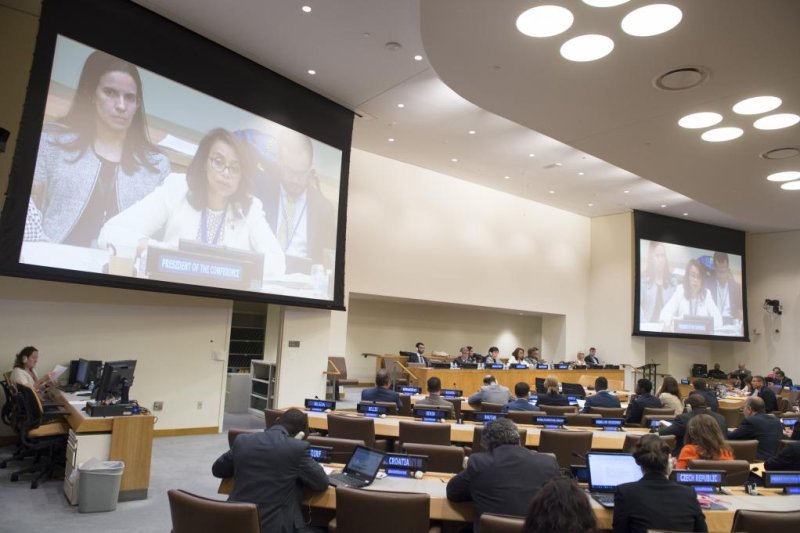At least 120 U.N. member countries approved a treaty globally banning nuclear weapons Friday. Photo courtesy the United Nations
July 7 (UPI) -- The United Nations formally adopted a treaty banning nuclear weapons Friday in New York City after months of talks and some seven decades of hoping for a similar agreement.
Representatives from more than 120 of the 192 member countries in the United Nations endorsed the Treaty on the Prohibiting Nuclear Weapons. All member states are able to sign the treaty during the General Assembly on Sept. 20.
Nearly all countries that bear nuclear arms as well as those that benefit from their protection boycotted the negotiations, The Guardian reported. The Netherlands, which hosts U.S. nuclear weapons, was the only exception and it voted against the treaty.
"It's been seven decades since the world knew the power of destruction of nuclear weapons and since day one there was a call to prohibit nuclear weapons," Elayne Whyte Gómez, president of the U.N. conference, told The Guardian. "This is a very clear statement that the international community wants to move to a completely different security paradigm that does not include nuclear weapons."
The United States called the treaty reckless.
"We have to be realistic," said Nikki Haley, U.S. ambassador to the United Nations, in March. "Is there anyone who thinks that North Korea would ban nuclear weapons?"
Supporters said they hope the widespread acceptance of the treaty would increase public pressure on the countries that don't sign and perhaps force them to reconsider.
"This treaty is a strong categorical prohibition of nuclear weapons and is really rooted in humanitarian law," said Beatrice Fihn, executive director of the International Campaign to Abolish Nuclear Weapons, to The New York Times.
"It provides a path for nuclear-armed states to join," she said Thursday. "We don't expect them to sign the treaty right now, but it's a good starting point for changing perceptions."















